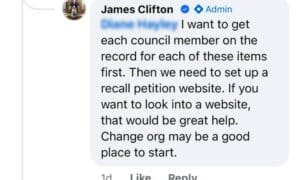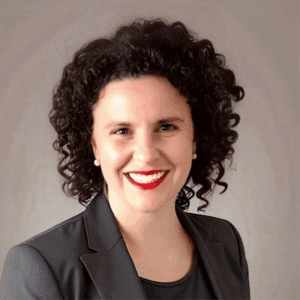There was only one agenda item at the Sept. 12 meeting of the Association of Fayette County Governments: the regional transportation one-cent sales tax initiative known as the Transportation Investment Act of 2010 that will be voted up or down at the polls in 2012. Elected officials from Fayette’s municipalities joined county commissioners at the meeting to hear about the initiative and weigh in on their opinions. And several did just that.
The enabling legislation that will lead to the 2012 vote came earlier this year by way of House Bill 277 that established a process through which the counties included in 12 identified regions (or districts) of the state would compile a list of needed transportation projects that would be put to voters in those regions. For Fayette County, that vote would be included with the other counties that make up the 10-county Atlanta Regional Commission.
If it passes, the vote would trigger a 1-cent sales tax collection that would span 10 years. And if approved, a small portion of the collections would be used for local transportation projects while the larger portion would go toward regionally identified and approved projects.
The initiative is essentially near the beginning of what Fayetteville Mayor, ARC representative and Georgia Municipal Association (GMA) President Ken Steele said was a 15 step process. Steele at the Sept. 12 meeting laid out the timeline for the process. Coming quickly will be the selection of each district’s 21-member Regional Transportation Roundtable (RTR) that will include the county commission chairman and a mayor from each county along with the mayor of Atlanta.
Peachtree City mayor Don Haddix and Fayette County commission Chairman Jack Smith have been tentatively named as Fayette’s representatives on the RTR.
The RTR of each district will establish the criteria for the regional projects to be considered and will elect a five-person executive committee. What will essentially be a projects “wish list” in the beginning will be distilled down, with the help of the Georgia Dept. of Transportation and others, into the projects that could be feasibly expected to be funded by the 1-cent sales tax revenues. The draft project list will be due next summer, followed by the final project list on Oct. 15, 2011. Voters the following summer will have their say on the matter.
Steele said there had been some talk suggesting Fayette would be overwhelmed by the transportation priorities of the larger ARC counties.
“But there has to be something in (the plan) for every county for folks to vote on it,” Steele said, adding that, “I think it’s going to be a tough sell for any region in the state unless the economy improves.”
Asked by Commissioner Herb Frady how the plan affects mass transit in Fayette County, Steele said there is no plan for mass transit for the county.
While most at the meeting had no comment, a handful people weighed in on the idea of the regional sales tax and its implications for Fayette County. Of those, Haddix and Tyrone Mayor Don Rehwaldt were essentially the only ones to call the idea behind the initiative into question.
Rehwaldt after Frady’s question on mass transit referenced a GMA map that showed rapid transit in Fayette. His comment was followed by those of Fayetteville Councilman AL Hovey-King, noting that the map was from 2002.
Steele also responded, citing four reason why Fayette will not get rapid rail in the foreseeable future.
“The majority of people don’t want it, there is no sound business plan, we don’t have the money and nobody else is going to pay for our transit,” Steele said.
Moments later Steele addressed Haddix in regard to some of his previously stated and printed thoughts on the initiative and his suggestion that Fayette might be better served leaving ARC and becoming a part of the more rural 10-county Three Rivers Regional Commission. Steele reminded Haddix that he had been selected to the ARC Regional Transportation Roundtable as one of Fayette’s two representatives.
“I’m not interested in your opinion. I’m interested in you doing your job as a mayoral representative to make sure we have transportation alternatives,” Steele said.
“I’ve asked the mayors to submit projects,” Haddix responded, with Steele saying that request was premature. “Don’t tell me my responsibility.”
Rehwaldt soon added his voice to the conversation.
“I was elected to take care of the people of Tyrone and that’s what I’m going to do,” Rehwaldt said as he presented brief remarks from a packet of information he had compiled.
“We’re getting closer and closer to a consolidated economy,” he said. “Our money would more positively affect Three Rivers than ARC.”
During the discussion Frady noted that a majority of Fayette County’s workforce leaves the county to work in other areas of metro Atlanta. Within that context, Frady said that regional projects are important to Fayette County, citing the congested interchanges at I-85 as examples and mentioning that large numbers of the vehicles at I-85 and Ga. Highway 74 come from Peachtree City.
Jack Smith also weighed in, saying that, as elected officials, the group is responsible for providing leadership on the transportation question.
“We have numerous points of congestion with much of that not caused (locally). We must recognize that the steps we have to take are hard. We share the burden of Atlanta’s traffic. It’s up to the members of the roundtable to get no less than we deserve,” Smith said.
Smith referenced Fayette County’s former membership in the precursor organization that recently became the 10-county Three Rivers Regional Commission of which Coweta County is a part.
“We left the former Three Rivers when we needed more planning assistance (from ARC) in 1991,” Smith said.
Smith during his remarks also thanked Rehwaldt for taking the time to amass the documentation he provided in his remarks.
It was unclear if any minds had been changed during the proceedings since most of those in the room remained silent during the meeting. It was clear, at least for now, that a degree of polarization still exists in terms of whether the regional transportation initiative is viable and necessary. What happens next will likely tell the tale.












Leave a Comment
You must be logged in to post a comment.